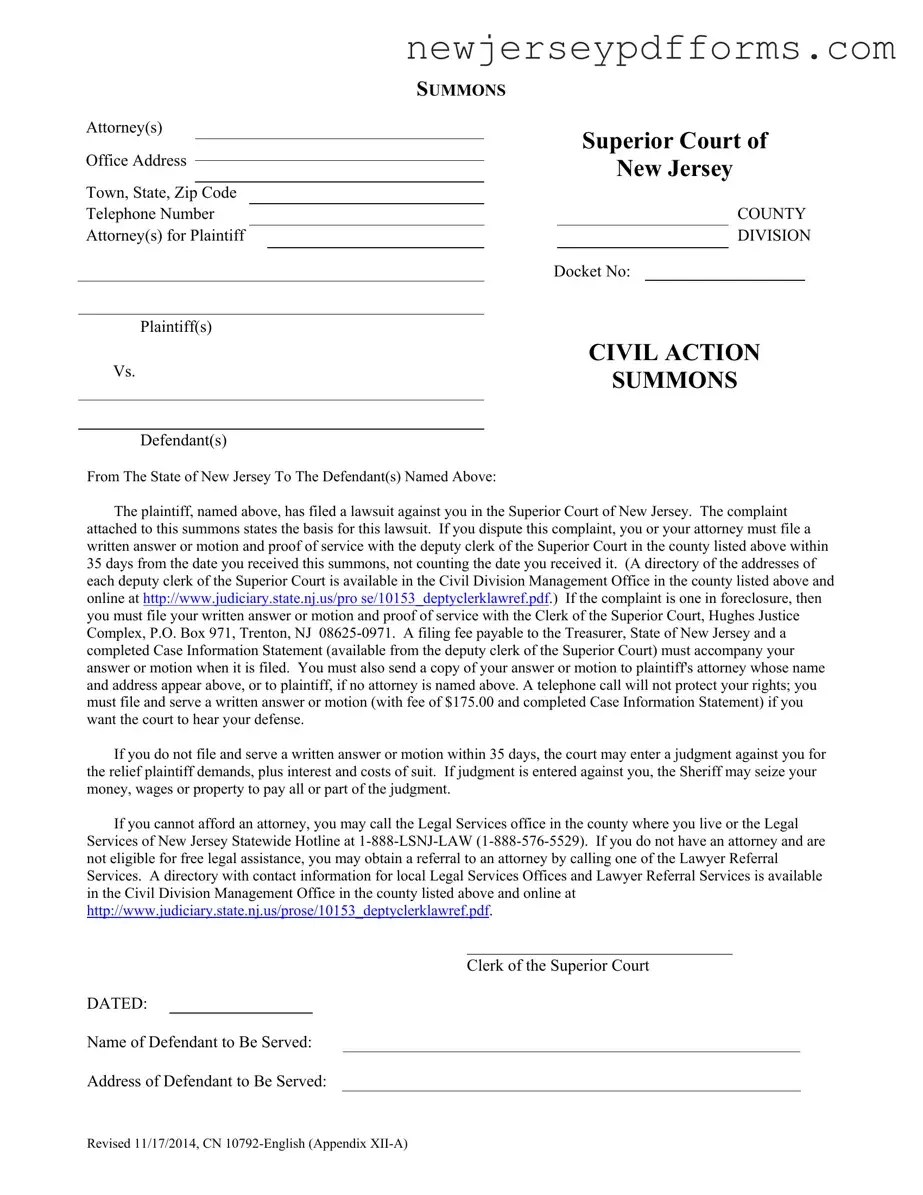What is the New Jersey Civil form?
The New Jersey Civil form is a legal document used in civil lawsuits filed in the Superior Court of New Jersey. It serves as a summons to notify the defendant that a lawsuit has been initiated against them. The form includes essential information such as the names of the parties involved, the court where the case is filed, and instructions for the defendant on how to respond to the complaint.
What should I do if I receive a New Jersey Civil form?
If you receive a New Jersey Civil form, it is important to read it carefully. You have 35 days from the date you received the summons to file a written answer or motion with the court. This response must be submitted to the deputy clerk of the Superior Court in the county indicated on the form. Failing to respond may result in a judgment against you.
How do I file a response to the summons?
To file a response, prepare a written answer or motion addressing the complaint. Include proof of service and submit it to the deputy clerk of the Superior Court. If the complaint involves foreclosure, send your documents to the Clerk of the Superior Court at the Hughes Justice Complex in Trenton. A filing fee of $175.00 and a completed Case Information Statement must accompany your submission.
What happens if I do not respond to the summons?
If you do not file a response within the 35-day period, the court may enter a default judgment against you. This means the plaintiff may receive the relief they are seeking, which could include monetary compensation. Additionally, the Sheriff may seize your wages, money, or property to satisfy the judgment.
Can I get legal help if I cannot afford an attorney?
Yes, if you cannot afford an attorney, you can contact the Legal Services office in your county or the Legal Services of New Jersey Statewide Hotline at 1-888-LSNJ-LAW (1-888-576-5529). They can provide assistance or guidance regarding your legal options.
What is the Case Information Statement?
The Case Information Statement is a form that provides the court with important details about your case. It must be completed and submitted along with your written answer or motion. You can obtain this form from the deputy clerk of the Superior Court.
Is it necessary to send a copy of my response to the plaintiff?
Yes, it is required to send a copy of your written answer or motion to the plaintiff's attorney, or to the plaintiff directly if no attorney is listed. This ensures that the plaintiff is aware of your response and allows for proper communication between both parties.
Where can I find more information about the New Jersey Civil form?
Additional information about the New Jersey Civil form, including resources for legal assistance and directories for local Legal Services Offices and Lawyer Referral Services, can be found online at the New Jersey Judiciary website. You can also visit the Civil Division Management Office in the county listed on your summons for further assistance.
What is the role of the Clerk of the Superior Court?
The Clerk of the Superior Court is responsible for maintaining court records and managing the filing of legal documents. They oversee the submission of responses, ensure that all necessary forms are completed, and provide guidance on court procedures. The Clerk does not provide legal advice but can assist with procedural questions.

